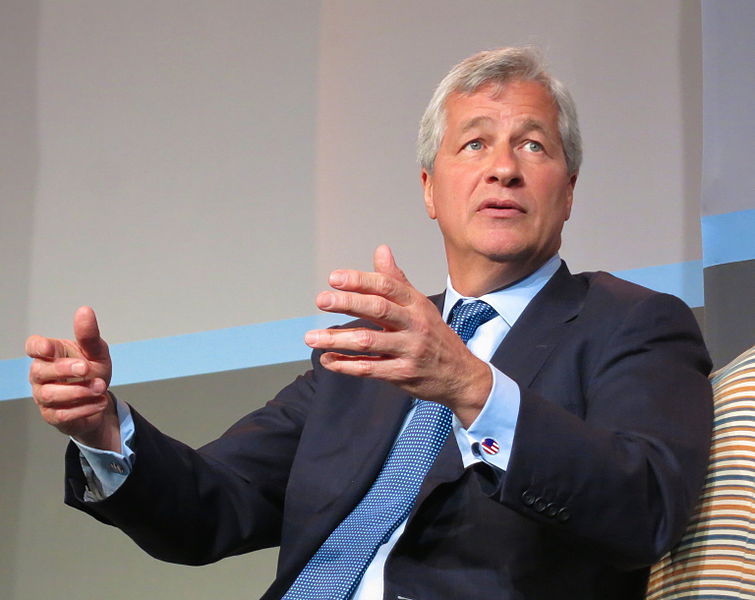
PMorgan and Bank of America lead the pack when it comes to implementing blockchain in the financial sector. In fact, the competition isn’t even close. Between patents, job hiring, and huge technology budgets, it seems unlikely that smaller banks will be able to compete in any substantive way.
JPMorgan, Bank of America, Citigroup and Wells Fargo have the largest technology budgets of the 175 banks surveyed recently by UBS.
JPMorgan is the biggest spender, according to the report, with a $11.4 billion technology budget for 2019. Bank of America is second at $10 billion, with Wells Fargo coming in at third with $9 billion, and Citigroup, with about $8 billion. After that, the drop is steep, with US Bancorp clocking in with a budget of around $2.5 million, half of which is considered operating expenses.

Jamie Dimon: a blockchain believer
JPMorgan and Bank of America are investing the most in new technologies such as blockchain. In the report, JPMorgan says nearly half of its technology budget goes into changing the banking industry and focusing on new technologies, while Bank of America says roughly one third of its budget ($3 billion) is devoted to developing new tech initiatives.
JPMorgan Chase, which announced its JPM Coin project in February, is on a blockchain job hiring spree, posting more jobs with “blockchain,” “cryptocurrency,” or “bitcoin” in their titles than any other financial firm, an Indeed.com report says. Only firms like IBM, Cisco, Accenture, Ernst & Young, KPMG, and Deloitte are posting more, and they have interests in all kinds of industries.
Bank of America, meanwhile, is locking up blockchain patents left and right. The company currently has 82 blockchain-related patents, compared to JPMorgan’s six, according to intellectual property law firm EnvisionIP. The earliest patents filed by Bank of America date back to 2014. They range from a blockchain powered ATM to a storage system for keys to cryptocurrency wallets (though BofA’s tech and operations chief Cathy Bessant says she’s skeptical overall about blockchain).
Get the BREAKERMAG newsletter, a weekly roundup of blockchain business and culture.
The UBS report also shows how consolidated spending on technology is in the financial sector. The vast majority of banks outside of the top four spenders on tech aren’t exploring new technologies like blockchain, but rather just trying to maintain the systems they already have in place. Fully 73 percent of respondents at the largest banks (those with assets over $250 billion) said they were implementing blockchain, while only 6 percent of those at smaller banks (those with assets lower than $100 billion) said they were doing so.
It’s not clear how the hegemonic spending of the massive banks will impact how blockchain implementation develops, or doesn’t. But with other behemoths like Facebook also ramping up blockchain-related hiring (connected with its secretive “Facecoin” projects) the giants of mainstream corporate America are wading ever deeper into the land of distributed ledgers. A clash between corporate control and decentralization could be on the horizon.
